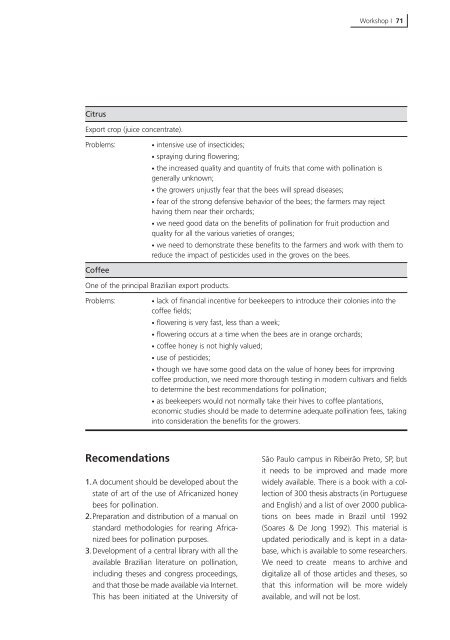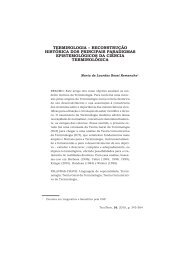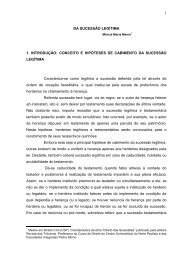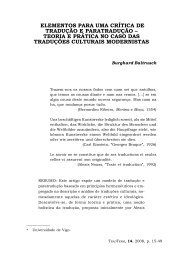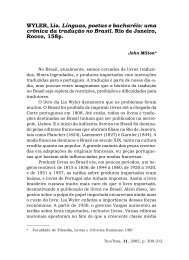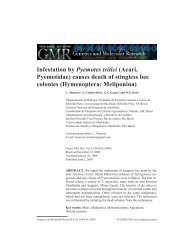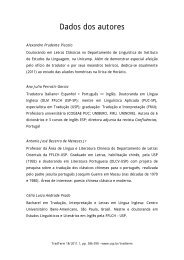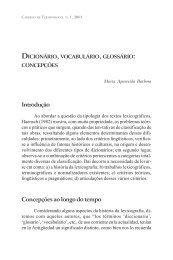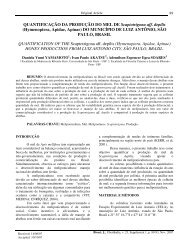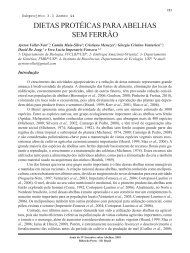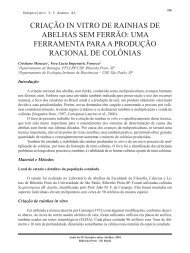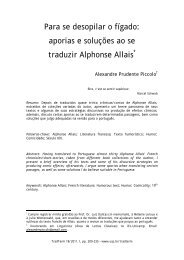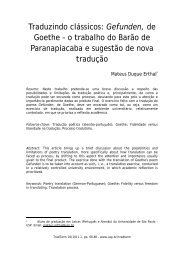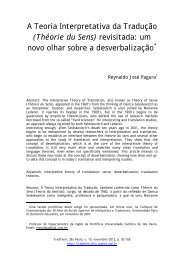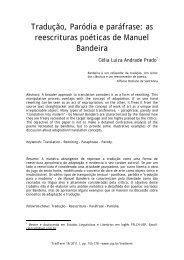Bees as pollinators in Brazil - USP
Bees as pollinators in Brazil - USP
Bees as pollinators in Brazil - USP
You also want an ePaper? Increase the reach of your titles
YUMPU automatically turns print PDFs into web optimized ePapers that Google loves.
Citrus<br />
Export crop (juice concentrate).<br />
Problems: • <strong>in</strong>tensive use of <strong>in</strong>secticides;<br />
Coffee<br />
• spray<strong>in</strong>g dur<strong>in</strong>g flower<strong>in</strong>g;<br />
Workshop I 71<br />
• the <strong>in</strong>cre<strong>as</strong>ed quality and quantity of fruits that come with poll<strong>in</strong>ation is<br />
generally unknown;<br />
• the growers unjustly fear that the bees will spread dise<strong>as</strong>es;<br />
• fear of the strong defensive behavior of the bees; the farmers may reject<br />
hav<strong>in</strong>g them near their orchards;<br />
• we need good data on the benefits of poll<strong>in</strong>ation for fruit production and<br />
quality for all the various varieties of oranges;<br />
• we need to demonstrate these benefits to the farmers and work with them to<br />
reduce the impact of pesticides used <strong>in</strong> the groves on the bees.<br />
One of the pr<strong>in</strong>cipal <strong>Brazil</strong>ian export products.<br />
Problems: • lack of f<strong>in</strong>ancial <strong>in</strong>centive for beekeepers to <strong>in</strong>troduce their colonies <strong>in</strong>to the<br />
coffee fields;<br />
Recomendations<br />
• flower<strong>in</strong>g is very f<strong>as</strong>t, less than a week;<br />
• flower<strong>in</strong>g occurs at a time when the bees are <strong>in</strong> orange orchards;<br />
• coffee honey is not highly valued;<br />
• use of pesticides;<br />
• though we have some good data on the value of honey bees for improv<strong>in</strong>g<br />
coffee production, we need more thorough test<strong>in</strong>g <strong>in</strong> modern cultivars and fields<br />
to determ<strong>in</strong>e the best recommendations for poll<strong>in</strong>ation;<br />
• <strong>as</strong> beekeepers would not normally take their hives to coffee plantations,<br />
economic studies should be made to determ<strong>in</strong>e adequate poll<strong>in</strong>ation fees, tak<strong>in</strong>g<br />
<strong>in</strong>to consideration the benefits for the growers.<br />
1.A document should be developed about the<br />
state of art of the use of Africanized honey<br />
bees for poll<strong>in</strong>ation.<br />
2.Preparation and distribution of a manual on<br />
standard methodologies for rear<strong>in</strong>g Africa -<br />
nized bees for poll<strong>in</strong>ation purposes.<br />
3.Development of a central library with all the<br />
available <strong>Brazil</strong>ian literature on poll<strong>in</strong>ation,<br />
<strong>in</strong>clud<strong>in</strong>g theses and congress proceed<strong>in</strong>gs,<br />
and that those be made available via Internet.<br />
This h<strong>as</strong> been <strong>in</strong>itiated at the University of<br />
São Paulo campus <strong>in</strong> Ribeirão Preto, SP, but<br />
it needs to be improved and made more<br />
widely available. There is a book with a collection<br />
of 300 thesis abstracts (<strong>in</strong> Portuguese<br />
and English) and a list of over 2000 publications<br />
on bees made <strong>in</strong> <strong>Brazil</strong> until 1992<br />
(Soares & De Jong 1992). This material is<br />
updated periodically and is kept <strong>in</strong> a datab<strong>as</strong>e,<br />
which is available to some researchers.<br />
We need to create means to archive and<br />
digitalize all of those articles and theses, so<br />
that this <strong>in</strong>formation will be more widely<br />
available, and will not be lost.


